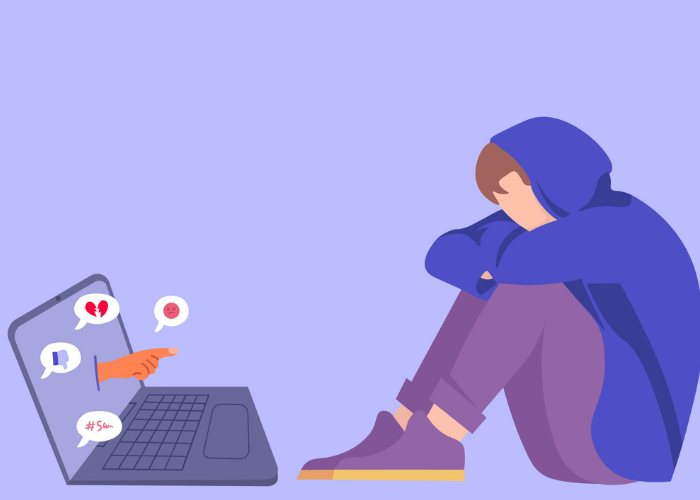
Online Bullying: How to Spot If Your Child Is Being Affected
Online bullying has become a huge concern for families in the UK. Recent reports show that almost 1 in 5 children aged 10–15 have experienced some form of cyberbullying. And unlike traditional bullying, which often ends when a child leaves school for the day, online harassment can follow them everywhere — through messages, social media posts or group chats that continue long into the evening.
The increase in screen time during and after the pandemic has only intensified the problem. Children spend more time online than ever, and the constant nature of digital communication means bullying can feel inescapable.
So how can parents recognise when something is wrong — and what can they do to help?
Signs Your Child May Be Experiencing Cyberbullying
Every child reacts differently, but behavioural changes are often the biggest clue that something is happening online. Look out for:
- Increased anxiety or nervousness
- Feeling upset, angry or tearful without explanation
- Withdrawing from family or spending long periods alone
- Avoiding school or becoming less social with friends
- Sudden drops in school performance
- Losing interest in hobbies they usually enjoy
- Trouble sleeping
- Constantly checking their device and appearing stressed when they can’t
Even subtle changes can be meaningful. If something feels “off”, it’s worth paying closer attention. Cyberbullying chips away at confidence and self-esteem, often leaving children feeling unsafe or overwhelmed.
Emotional Impact of Online Bullying
When a child feels supported at home, they’re more likely to open up about what’s happening. But if they don’t feel they have someone to turn to — or if the bully is anonymous — the emotional impact can be far more severe.
Long-term consequences of cyberbullying may include:
- Prolonged sadness or depression
- Low self-worth
- Increased risk of self-harm
- Social withdrawal
- Substance abuse in later years
It’s important to take any signs seriously and create space for honest, gentle conversations.
How to Support and Protect Your Child
One recommended approach is something experts call a “safe conversation”. This means talking in a calm, non-judgemental way — ideally during an activity where your child doesn’t feel pressured to make eye contact, such as driving, walking or cooking together.
Here are a few tips:
- Start the conversation casually, without confrontation
- Reassure them they’re not in trouble
- Avoid blaming or criticising how they’ve handled things so far
- Give them space to describe the situation in their own words
- Work together on what the next steps could look like
If the bullying is linked to school, teachers and safeguarding teams must be informed so they can support your child and address what’s happening. Even if the incidents aren’t school-related, letting staff know helps them understand behavioural changes or drops in performance.
Ways Cyberbullying Can Happen
- Abusive or threatening messages
- Harassment on social media
- Sharing embarrassing photos or videos
- Impersonation using fake accounts
- Repeated prank calls
- Excluding someone from online groups or games
- Trolling and targeted comments
With more children using smartphones earlier than ever, helping them stay safe online is just as important as teaching them how to stay safe outside. If you’re reviewing your child’s device setup, our refurbished smartphone range includes options suitable for younger users with strong safety settings.
Keeping Children Safe in a Digital World
There are plenty of parental control tools designed to help manage screen time, block harmful content and monitor online activity. Well-known options include NetNanny, Kaspersky, Google Family Link, Qustodio and Bark — each offering different features depending on what support your child needs.
As children grow up in an increasingly connected world, the goal shouldn’t be to remove technology entirely — but to ensure they feel safe, supported and confident navigating it.
